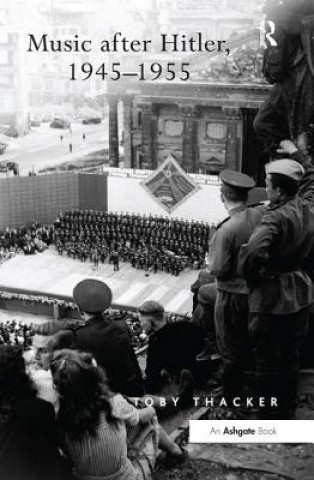
Kód: 04680040
Music after Hitler, 1945-1955
Autor Toby Thacker
The political control of music in the Third Reich has been analysed from several perspectives, and with ever increasing sophistication. However, music in Germany after 1945 has not received anything like the same treatment. Rather ... celý popis
- Jazyk:
 Angličtina
Angličtina - Väzba: Pevná
- Počet strán: 296
Nakladateľ: Taylor & Francis Ltd, 2007
- Viac informácií o knihe

Mohlo by sa vám tiež páčiť
-

Statistical Physics
337.08 € -

Integrating the Neurobiology of Schizophrenia
200.08 € -

Conditioned Taste Aversion
207.03 € -

Canciones de Espana
100.09 € -
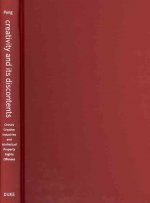
Creativity and Its Discontents
150.39 € -
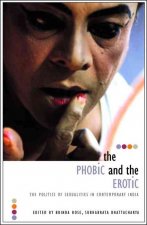
Phobic and the Erotic - The Politics of Sexualities in Contemporary India
113.17 € -

Temný případ 2.série 3DVD
12.87 €
Darujte túto knihu ešte dnes
- Objednajte knihu a vyberte Zaslať ako darček.
- Obratom obdržíte darovací poukaz na knihu, ktorý môžete ihneď odovzdať obdarovanému.
- Knihu zašleme na adresu obdarovaného, o nič sa nestaráte.
Viac informácií o knihe Music after Hitler, 1945-1955
Nákupom získate 575 bodov
 Anotácia knihy
Anotácia knihy
The political control of music in the Third Reich has been analysed from several perspectives, and with ever increasing sophistication. However, music in Germany after 1945 has not received anything like the same treatment. Rather, there is an assumption that two separate musical cultures emerged in East and West alongside the division of Germany into two states with differing economic and political systems. There is a widely accepted view of music in West Germany as 'free', and in the East subject to party control. Toby Thacker challenges these assumptions, asking how and why music was controlled in Germany under Allied Occupation from 1945-1949, and in the early years of 'semi-sovereignty' between 1949 and 1955. The 're-education' of Germany after the Hitler years was a unique historical experiment and the place of music within this is explored here for the first time. While emphasizing political, economic and broader social structures that influenced the production and reception of different musical forms, the book is informed by a sense of human agency, and explores the role of salient individuals in the reconstruction of music in post-war Germany. The focus is not restricted to any one kind of music, but concentrates on those aspects of music, professional and amateur, live and recorded, which appeared to be the mostly highly charged politically to contemporaries. Particular attention is given to 'denazification' and to the introduction of international music. Thacker traces the development of a divide between Communist and liberal-democratic understandings of the place of music in society. The contested celebrations of the Bach Year in 1950 are used to highlight the role of music in the broader cultural confrontation between East and West. Thacker examines the ways in which central governments in East and West Germany sought to control and influence music through mechanisms of censorship and positive support. The book will therefore be of interest not only to musicologists, but also to specialists in German post-war history and cultural historians in general.
 Parametre knihy
Parametre knihy
Zaradenie knihy Knihy po anglicky Humanities History History: specific events & topics
232.49 €
- Celý názov: Music after Hitler, 1945-1955
- Autor: Toby Thacker
- Jazyk:
 Angličtina
Angličtina - Väzba: Pevná
- Počet strán: 296
- EAN: 9780754653462
- ISBN: 0754653463
- ID: 04680040
- Nakladateľ: Taylor & Francis Ltd
- Hmotnosť: 572 g
- Rozmery: 161 × 240 × 25 mm
- Dátum vydania: 28. January 2007
Obľúbené z iného súdka
-

Man's Search for Meaning
7.04 € -7 % -
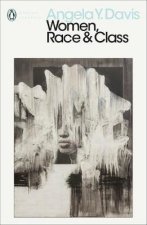
Women, Race & Class
10.21 € -21 % -

Pianist
10.21 € -29 % -

Out Of Place
12.26 € -23 % -
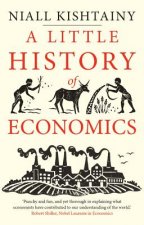
Little History of Economics
14.81 € -9 % -
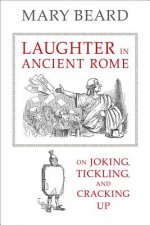
Laughter in Ancient Rome
20.23 € -11 % -

Civilization and Capitalism, 15th-18th Century
67.47 € -

Armies of Medieval Burgundy 1364-1477
15.94 € -15 % -

Night
10.11 € -23 % -
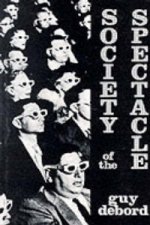
Society of the Spectacle
11.75 € -

Imperialism: The Highest Stage of Capitalism
7.45 € -13 % -

Man's Search For Meaning
16.55 € -23 % -
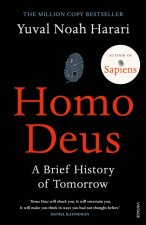
Homo Deus
12.77 € -24 % -

Ordinary Men
10.93 € -24 % -

Black Earth
12.97 € -23 % -

The Complete MAUS
18.70 € -14 % -

The Rape of Nanking
15.94 € -23 % -

Madness and Civilization
17.88 € -8 % -

Conquerors
11.85 € -18 % -
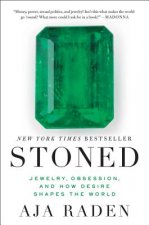
Stoned
11.13 € -23 % -

Twelve Years a Slave
3.57 € -24 % -

At Home
12.26 € -23 % -
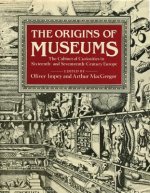
Origins of Museums
58.88 € -17 % -

Measure of a Man
14.51 € -

Delirious New York
30.05 € -16 % -

Eichmann in Jerusalem
11.03 € -23 % -

Mein Kampf - The Ford Translation
41.81 € -

Bloodlands
12.87 € -24 % -

Guns, Germs and Steel
12.77 € -24 % -

Cold War Submarines
37.21 € -19 % -
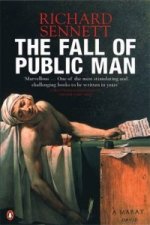
Fall of Public Man
16.55 € -23 % -

Che Guevara
24.83 € -13 % -

Dancing In The Streets
12.26 € -23 % -

Fix the Pumps
14.81 € -18 % -

Blue
38.13 € -7 % -

Revolutionary Yiddishland
13.59 € -14 % -

Commandant Of Auschwitz
12.26 € -23 % -
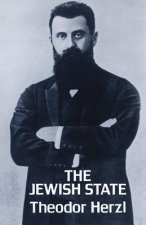
Jewish State
11.75 € -4 % -
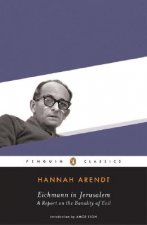
Eichmann in Jerusalem
15.33 € -21 % -

Reflections on the Revolution in France
10.11 € -23 % -
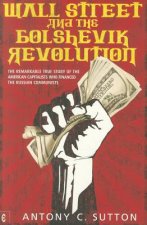
Wall Street and the Bolshevik Revolution
14.41 € -23 % -

Corgi Toys
17.37 € -5 % -

Night
11.13 € -23 % -

Wreck of the Titan
13.18 € -18 % -

McMafia
12.26 € -23 % -

Intimate History of Humanity
14.41 € -23 % -
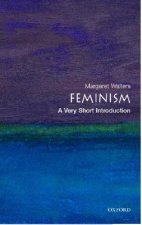
Feminism: A Very Short Introduction
10.11 € -23 % -
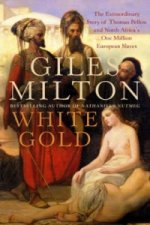
White Gold
14.41 € -23 % -
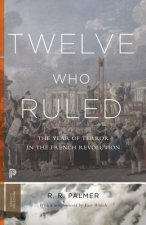
Twelve Who Ruled
24.02 € -14 %
Osobný odber Bratislava a 2642 dalších
Copyright ©2008-24 najlacnejsie-knihy.sk Všetky práva vyhradenéSúkromieCookies



 21 miliónov titulov
21 miliónov titulov Vrátenie do mesiaca
Vrátenie do mesiaca 02/210 210 99 (8-15.30h)
02/210 210 99 (8-15.30h)